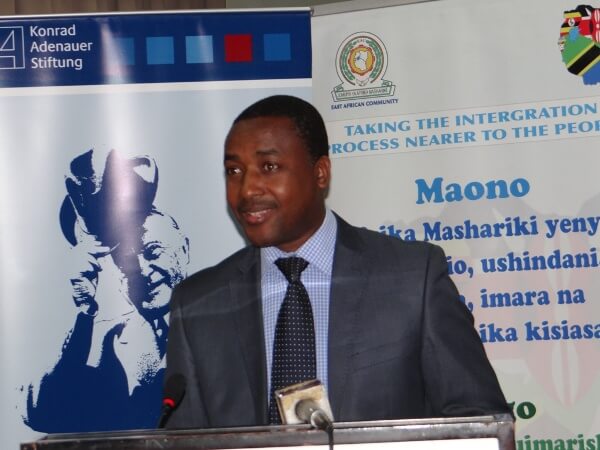
Our Projects are
Transforming African Trade
Quick Contacts
2nd Floor, Fidelity Insurance Centre Waiyaki Way, Westlands

The first series of the East African Community Capacity Building Sessions for Plant Health Inspectors on Standard Operating Procedures (SOPs) to operationalize Pest Risk Analysis in the region concluded at Mutukula One Stop Border Post (OSBP) located on the Uganda/Tanzania border.
The five capacity building workshops conducted at the OSBPs of Namanga (Kenya/Tanzania), Malaba (Kenya/Uganda), Kabanga-Kobero (Tanzania/Burundi), Rusumo (Tanzania/Rwanda), and Mutukula (Tanzania/Uganda) were aimed at creating awareness amongst plant health inspectors on the Standard Operating Procedures (SOPs) for inspecting maize, beans, and rice for pests of phytosanitary importance in the EAC.
The workshops were also meant to facilitate the implementation of the SOPs at all the EAC border posts and identify any challenges that might be associated with the implementation of the SOPs.
Speaking during the closing session of the of the workshop at Mutukula, the EAC Director of Productive Sectors, Mr. Jean Baptiste Havugimana, on behalf of the EAC Deputy Secretary General in charge of Productive and Social Sectors, thanked USAID Kenya/East Africa (USAID/KEA) and the US Department of Agriculture (USDA-FAS) for their generous financial and technical support towards supporting food safety in the region.
Mr. Havugimana reaffirmed EAC’s commitment to work closely with the Partner States and key Development Partners to mobilize additional resources to scale up the training to other OSBPs and address the identified gaps and actions towards the elimination of trade related Phytosanitary barriers for the three commodities (maize, rice and beans) in the EAC.
Mr. Havugimana assured Partner States that the Secretariat would mobilize additional resources to implement a follow-up initiative dubbed “One Inspector One Toolkit.”
The new initiative will aim at increasing the number of inspectors at OSBPs and ensuring that every appointed inspector has his/her own complete world-class toolkit.
On his part, Mr. Paul Mwambu, the Commissioner, Department of Crop Inspection and Certification, Ministry of Agriculture Animal Industry and Fisheries, in the Republic of Uganda expressed appreciation for being part of the historic capacity building process.
He noted that for the Republic of Uganda, the training was important because it enhanced the inspection of the most traded commodities in the East African region and would lead to reduction in Non-Tariff Barriers (NTBs) thus enhancing regional trade, food security and deepening regional integration.
Read original article
Disclaimer: The views and opinions expressed in this article are those of the authors and do not necessarily reflect the official policy or position of TradeMark Africa.